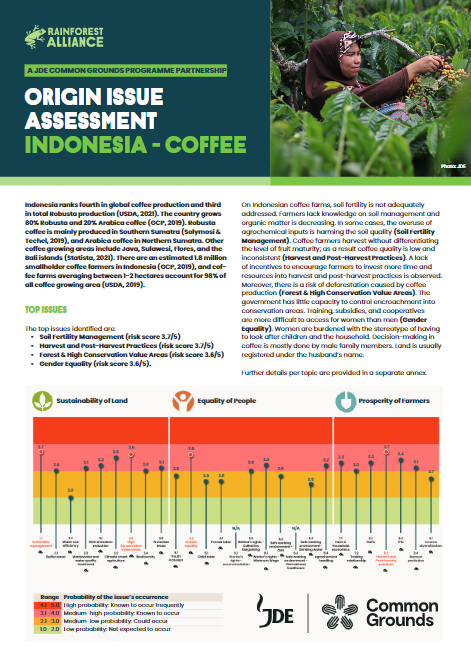Origin Issue Assessment: Indonesia Coffee
Research conducted for the 2021 Indonesia Origin Issue Assessment (OIA) identifies the following themes as top risks in the country: soil fertility management, harvest and post-harvest practices, forest and high conservation value areas, and gender equality.
On Indonesian coffee farms, soil fertility is not adequately addressed. Farmers lack knowledge on soil management and organic matter is decreasing. In some cases, the overuse of agrochemical inputs is harming the soil quality. Coffee farmers harvest without differentiating the level of fruit maturity; as a result, coffee quality is low and inconsistent. A lack of incentives to encourage farmers to invest more time and resources into harvest and post-harvest practices was observed. Moreover, there is a risk of deforestation caused by coffee production. The government has little capacity to control encroachment into conservation areas. Training, subsidies, and cooperatives are more difficult to access for women than men. Women are burdened with the stereotype of having to look after children and the household. Decision-making in coffee farming is mostly done by male family members, and land is usually registered under the husband’s name.
